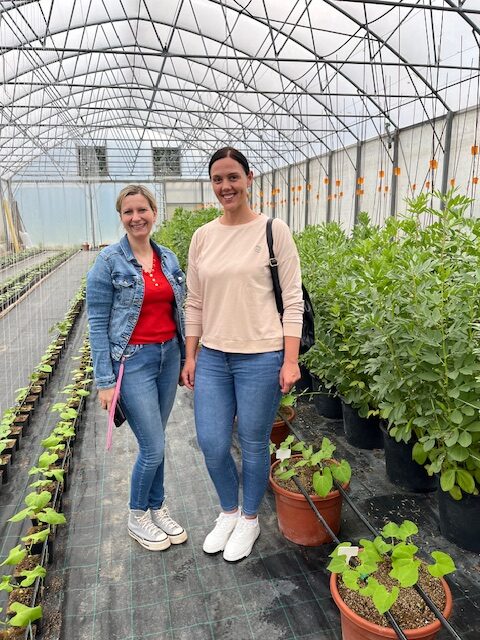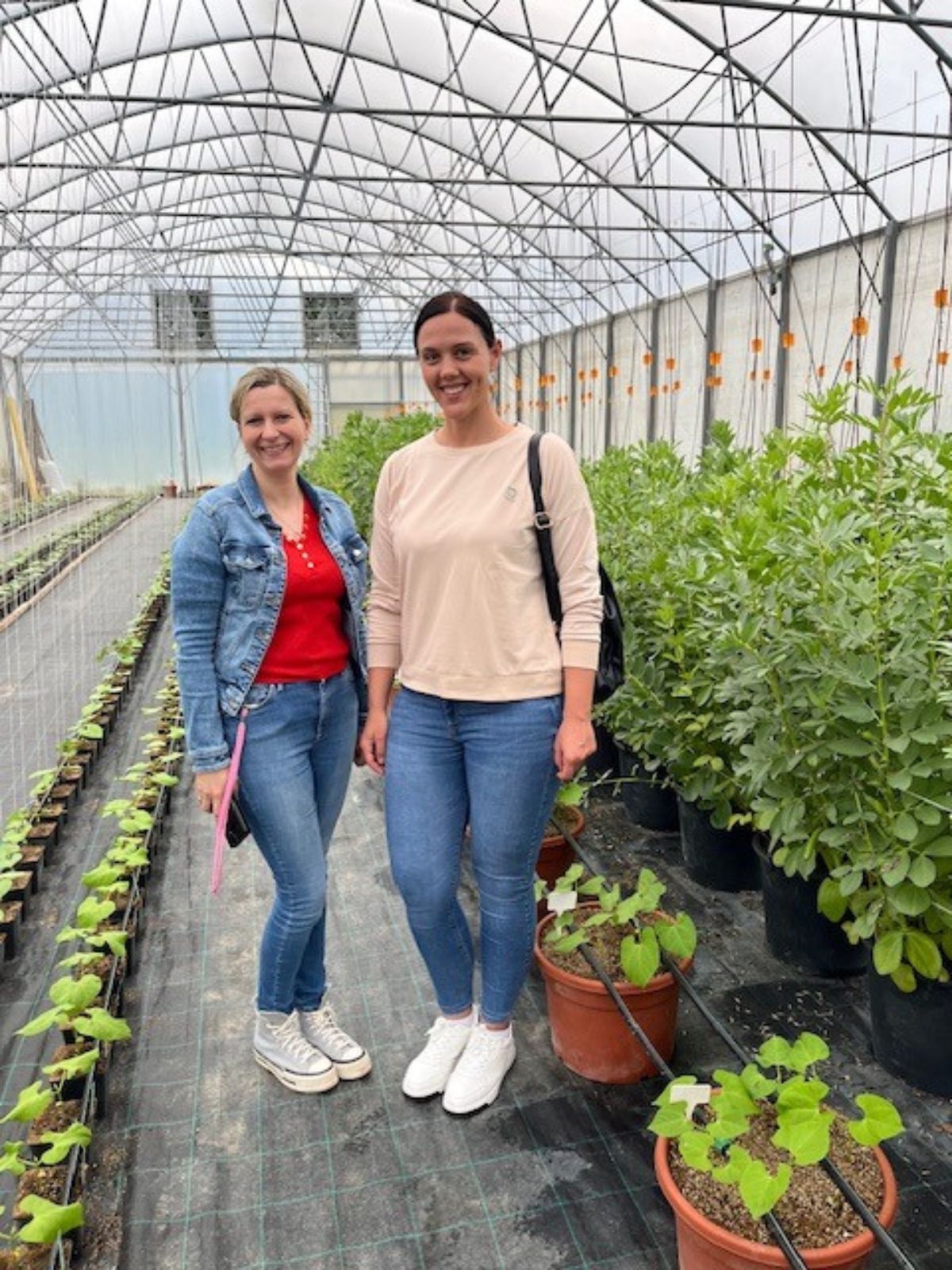As part of the EU-funded CREDIT Vibes project, a specialized staff exchange program was held at the Agricultural Institute of Slovenia (KIS) from May 18th to 31st, 2025, focusing on advanced statistical data analysis techniques in agricultural research. The training was attended by Dr. Sanja Perić, a researcher from the Maize Research Institute (MRI) in Serbia.

The two-week training was designed to enhance skills in data processing and interpretation, particularly in the context of mutation breeding in common bean (Phaseolus vulgaris). The program provided a comprehensive hands-on learning experience with an emphasis on statistical workflows relevant to plant breeding and genetics.
The training covered a broad range of tasks including:
- Data collection, cleaning, and formatting for statistical analysis
- Exploratory data analysis (EDA) using visualization tools
- Application of ANOVA for testing significance in mutant populations
- Use of Principal Component Analysis (PCA) and cluster analysis for trait evaluation
- Correlation and regression analysis to determine trait interdependence and predict genotype performance
Field and Practical Components
In addition to software training, the program included field demonstrations and collaborative discussions on phenotyping and genotyping practices. These practical elements supported Dr. Perić in understanding how to integrate raw data from greenhouse-grown common bean mutants—developed through gamma irradiation—into meaningful statistical outputs.
Impact on Research Capacity
The staff exchange is one of several capacity-building initiatives under the CREDIT Vibes project, which aims to improve the scientific and technical competencies of researchers through knowledge sharing and institutional collaboration.
About CREDIT Vibes
CREDIT Vibes (Capacity building in Research and Education to Drive Innovation in plant breeding) is a collaborative research project supported by the European Union. Its focus is on strengthening innovation in plant breeding through interdisciplinary training, joint experiments, and enhanced data-driven approaches.
This training at KIS marks another milestone in the project’s efforts to empower scientists with the tools and knowledge needed to address future challenges in agricultural sustainability and food security.


